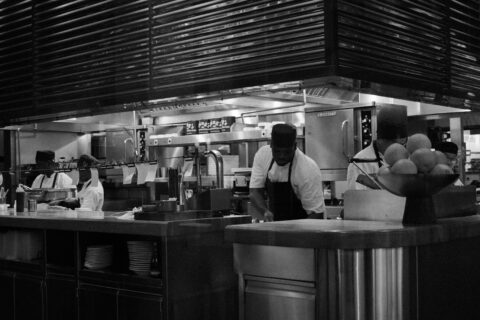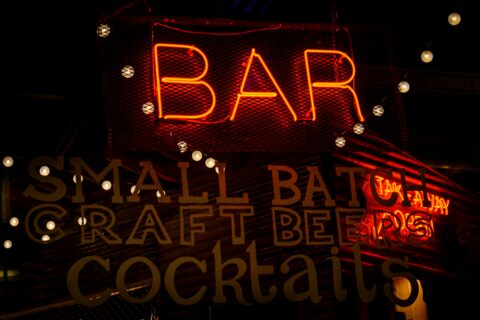Food safety is super important.
That many seem like an exaggeration, unsafe food can cause more than 200 different diseases. In Australia, unsafe food causes about 47,900 hospitalizations and 38 deaths each year.
That’s why Food Safety Supervisor’s are an essential role in every food business, helping ensure the business and staff meet hygiene and safety standards. Plus, it’s a legal requirement.
But what do they actually do?
Key Responsibilities of Food Safety Supervisors
Food Safety Supervisors have a variety of tasks to do but the main ones are:
-
Implement procedures & measures for food safety.
-
Follow all food safety policies and procedures correctly and consistently.
-
Control food hazards.
-
Complete food safety monitoring processes.
-
Identify and report practices that are inconsistent with the food safety procedures.
-
Take corrective actions for incidents where food hazards are unacceptable.
-
Understand the obligations of food handlers under current legislation.
-
Learn the correct ways of food handling and storage.
-
Identify potential hygiene risks.
-
Implement correct methods of cleaning and sanitising.
-
Maintain standards of personal hygiene for food handlers.
-
Reduce the risk of food-borne illness (food poisoning).
Digging Deeper into the Role of a Food Safety Supervisor
Implement Procedures for Food Safety
The Food Safety Supervisor bears the responsibility of not only creating procedures that ensure food safety and hygiene but also enforcing these procedures among staff and personnel. This means that the Food Safety Supervisor may be given authority by the business manager or proprietor to conduct staff training on how to appropriately prepare or serve food safely.
The Food Safety Supervisor also has the responsibility of implementing procedures as deemed fit for the food business, and to adjust these procedures to suit food safety and food hygiene better.
Ensure that Employees and Staff Follow All Food Safety Policies and Procedures Correctly
The Food Safety Supervisor must set the standards for a food business regarding food safety and food hygiene, and so should represent the role appropriately by following the processes and procedures correctly. The Food Safety Supervisor should be able to conduct spot checks or inspections of employee and staff adherence to the food safety policies and procedures.
It is critical to note that this particular responsibility of a Food Safety Supervisor is crucial, as a food business can be legally liable for damages if it can be proved that a food business has been negligent with its food safety and hygiene. The Food Safety Supervisor must exercise due diligence with regard to inspections for the protection of both the food business and its customers.
Control Food Hazards at Critical Control Points.
The Food Safety Supervisor should be able to identify critical control points in the food preparation or service processes, and assess whether or not these control points present potential hazards or risks for food safety. The Food Safety Supervisor must also be able to implement controls or actions that will minimise or resolve these identified hazards or risks - immediately if deemed necessary.
Implement correct methods of cleaning and sanitising.
When it comes to food safety, there are specific steps that should be taken to ensure that the food to be served is safe to consume. A Food Safety Supervisor’s role within a food business is to create and implement the appropriate methods of cleaning and sanitising, both for food preparation stations and the food items themselves. The Food Safety Supervisor should also be able to educate food business staff on the proper methods as fits their business.
The Food Safety Supervisor is also responsible for ensuring that any established processes regarding cleaning ad sanitising are enforced to the best of the staff’s ability, and is tasked with inspecting food preparation stations to ensure staff compliance.
Maintain appropriate standards of personal hygiene for food handlers.
Food handlers are the first line of contact when it comes to food preparation. It is especially important for food handlers to have good hygiene, and a responsible Food Safety Supervisor bears the responsibility of establishing guidelines for personal hygiene. The Food Safety Supervisor is also tasked with ensuring that these guidelines are followed and met.
How to Become a Food Safety Supervisor in Australia
Anyone, whether the business owner, licensee, manager, employee or external contractor can be a food safety supervisor, if they meet these requirements:
-
holds a food safety supervisor certificate, issued by a registered training organisation, or other recognised organisation, within the past 5 years
-
regularly handles food as part of their normal duties
-
takes a lead role in supervising food safety within the food business
-
regularly on site and reasonably available at all times the business is operating, either on the premises or available for Council or food handlers (staff) to contact whenever there is food handling.
A food safety supervisor should:
-
know how to recognise, prevent and alleviate food safety hazards of the food business
-
have skills and knowledge in matters relating to food safety relevant to the food business
-
have the authority to supervise staff and give directions about food safety to people who handle food in the food business.
Every food safety supervisor must complete a Food Safety Supervisor course run by an accredited training organization like CTA Training Specialists. Check out our guide on picking the right FSS course.
Once they have completed their training, they will be provided with a ‘Statement of Attainment’ which will state the units of competency for the training they have completed. You Food Safety Supervisor Statement of Achievement will only be valid for 5 years and you will be required to renew it once it expires.
If you want to know more, we have a handy guide on getting a Food Safety Supervisor certificate or you can book a course at one of these links:
Businesses That Require Food Safety Supervisors
This changes depending on the state you’re operating in.
New South Wales
New South Wales has some of the strictest rules.
All retail, hospitality and food service businesses need to appoint at least one Food Safety Supervisor (FSS) per premises if food they prepare and serve is:
-
ready-to-eat
-
potentially hazardous, that is, needs temperature control
-
NOT sold and served in the supplier's original package.
Broadly, this includes all businesses selling potentially hazardous food to the public, such as: cafes, restaurants, quick service venues, takeaway shops, pubs and clubs with food service areas, mobile vendors, home-based businesses, caterers, motels, supermarkets selling potentially hazardous food (such as hot-chickens) and outlets that sell food through third party ordering apps.
Also included are:
-
school canteens
-
children’s services that provide meals, including out of school hours care
-
supermarkets
-
delicatessens
-
greengrocers
-
coffee vendors that sell unpackaged, potentially hazardous, ready-to-eat food
-
boarding schools, and
-
correctional centres.
Victoria
Under section 19C of the Act, all class 1, most class 2, and class 3A food premises must have a food safety supervisor. All class 2 community groups are exempt from this requirement if the ‘proprietor’ is a community group, they trade for no more than two consecutive days at a time and most of the ‘staff’ are volunteers.
Local councils determine which class the food premises fits into, based on the highest risk food-handling activity undertaken at the premises. Different businesses with the same owner or different premises belonging to the same franchise chain may be classed differently. One business, franchise or chain may need a food safety supervisor, and another may not.
Food businesses that operate from more than one site can have one person as the food safety supervisor across a number of premises. The local council must be satisfied with the arrangement you propose. If the premises are in different municipalities, each local council must be satisfied with the arrangements.
Food safety supervisor exemptions
Class 3 and Class 4 food businesses only handle lower-risk foods and are not required to have a food safety supervisor. However, the food business owner must ensure that staff members have the skills and knowledge they need to safely handle food in their work roles. See ‘Food handler training’ for more information.
A food safety supervisor is also not required where a food premises uses a Quality Assurance food safety program that includes competency-based or accredited training for staff of the premises.
A community group running food events of 1–2 days duration, where those handling the food are mostly volunteers, do not need a food safety supervisor. This is true even if the event is classified as Class 2. If you are a community group and you are planning to run food-related activities for more than two days, speak to your local council about your food safety supervisor requirements.
Find your food business classification.
Queensland
All licensable food businesses in Queensland must employ a Food Safety Supervisor.
Some non-profit organisations or food businesses that only sell packaged or low-risk foods, such as soft drinks, biscuits or cakes, may be exempt from this requirement; however, businesses that prepare or sell potentially hazardous foods (also called high-risk foods), must nominate a Food Safety Supervisor.
Food Safety Supervisor’s are an integral part of the hospitality industry in Australia and can be a great route for workers looking to build a career in the industry.




